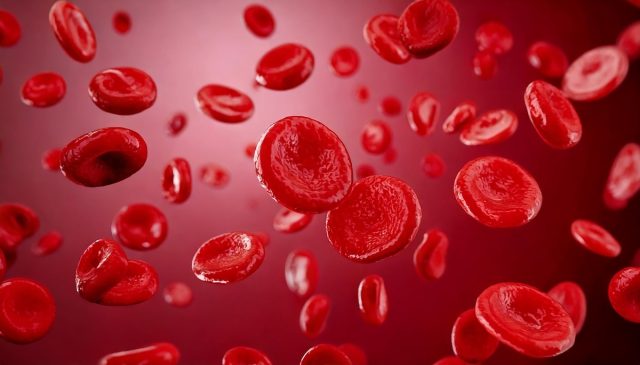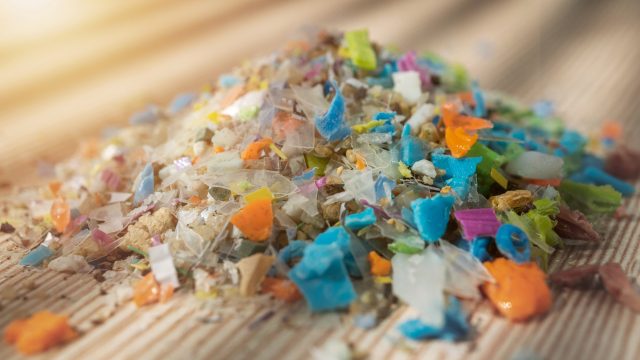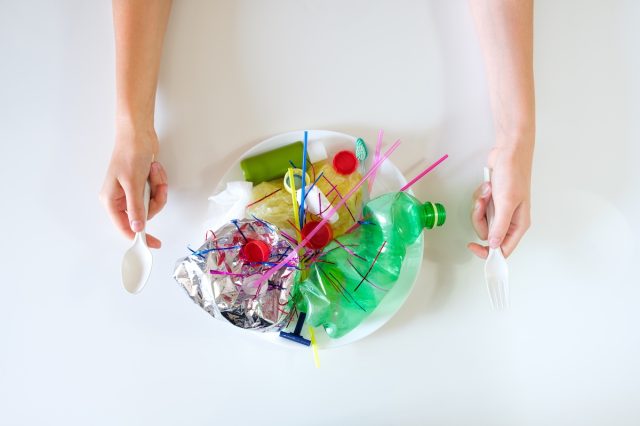Scientists Find Microplastics in Food Packaging May Be Damaging Your Heart

Are you damaging your heart by eating food that comes in plastic packaging? According to a team of Italian researchers, you very well could be. A recent study published in Scientific Reports claims that microplastics, specifically those from food packaging, may be damaging your heart health. Here is everything you need to know about the shocking study – and a few expert-recommended ways to avoid damaging your health.
Dr. Joseph Mercola, Board Certified Family Medicine Osteopathic Physician (DO) and Author of Your Guide to Cellular Health, explains that researchers looked at how tiny plastic particles—specifically polyethylene and polystyrene (standard in plastic containers and food wrappers)—affect human vascular smooth muscle cells (VSMCs), which help keep your blood vessels healthy.

"Microplastics caused cell damage, inflammation, and even cell death in these essential artery-supporting cells," Dr. Mercola explains. The study also found that exposure to microplastics made these cells migrate—which could be a serious problem for your heart and arteries. "Normally, these muscle cells stay in place, helping your blood vessels function properly. When they migrate too much, they contribute to plaque buildup in your arteries, a process linked to heart disease, strokes, and artery hardening (vascular calcification)," he adds.
This means that daily exposure to microplastics—whether from plastic food packaging, bottled water, or even environmental pollution—could silently contribute to heart disease.
The Cardiovascular Risks Explained

The study published in Scientific Reports highlights the potential cardiovascular risks posed by microplastics (MPs), specifically polyethylene (PE) and polystyrene (PS), commonly used in food packaging. Researchers investigated the effects of both virgin and environmentally degraded microplastics on human vascular smooth muscle cells (VSMCs), which play a crucial role in maintaining healthy blood vessels. Their findings revealed that exposure to MPs led to significant cellular damage, including reduced cell viability, increased apoptosis (cell death), and inflammation. Additionally, the study identified changes in key molecular markers such as RUNX-2 and galectin-3, which are associated with vascular disease, atherosclerosis, and arterial calcification. Notably, MPs triggered abnormal migration of VSMCs, a phenomenon linked to plaque buildup in arteries, further reinforcing the potential link between plastic exposure and cardiovascular health risks.
The research also demonstrated that MPs activated the inflammasome complex, an inflammatory response that can contribute to vascular damage and disease progression. The study's findings align with previous evidence showing that microplastics can accumulate in the human heart and surrounding tissues, potentially exacerbating heart disease risk. Given the widespread presence of MPs in food packaging, bottled water, and the environment, the researchers stress the urgent need for further investigation into their long-term health effects. While more research is required, the study underscores the importance of minimizing exposure to plastic-based products, particularly in food storage and packaging, to reduce potential cardiovascular risks.
The Doctor's Takeaway
His takeaway? "This study is a wake-up call. We've long worried about how microplastics affect digestion, but this research suggests they may be harming our cardiovascular system too," Dr. Mercola maintains.

The bad news? You can't completely eliminate microplastic exposure, per Dr. Mercola. The good? "You can significantly reduce it with a few smart choices.
- "At home, swap out plastic food containers and water bottles for glass or stainless steel to limit the plastic particles that leach into what you eat and drink," he says.
- "Also, avoid heating food in plastic, as heat breaks down plastic and increases the release of microplastics," he suggests.
- "Filter your drinking water since tap and bottled water can contain microplastics," Dr. Mercola maintains.
- "Eating whole, unprocessed foods prepared at home will also reduce your exposure significantly because highly processed foods typically come in plastic-heavy packaging. That includes most take-out food as well," he notes.
- "Finally, reducing your overall plastic use—like bringing reusable bags and avoiding plastic-wrapped produce—can limit the environmental microplastic load, which eventually finds its way back into your body," he says.
"While more research is needed, the message is clear: reducing plastic exposure isn't just good for the planet—it may also protect your heart," he concludes.








